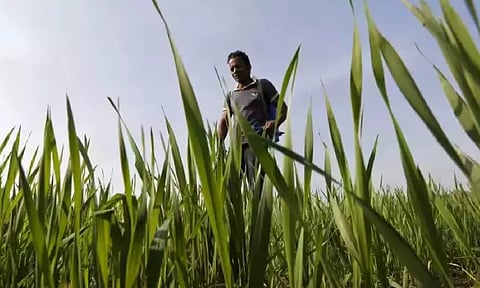

NEW DELHI: Maintaining high import duties on sensitive agri commodities like rice and resisting pressure to open up the domestic sector to low tariffs will be crucial for preserving India’s self-sufficiency and ensuring food security for its population, a report said on Monday.
Economic think tank GTRI (Global Trade Research Initiative) in its report said India needs to cut its reliance on imported vegetable oils to promote better health outcomes and also reduce the import bill.
This will need educating consumers about the health benefits of using locally produced oils like mustard, groundnut, and rice bran in lieu of imported oils.
India is the world’s largest importer of vegetable oils, with imports estimated to double to $20.8 billion in 2023-24 from $10.8 billion in 2017-18.
It added that the US and EU currently support agriculture by using the latest technology to maximise output, high tariffs (or import duties) to discourage imports and massive subsidies to push exports.
Developed and agri-exporting countries like Australia always push developing countries like India to cut duties and subsidies on agri commodities to push their exports.
India has built a high import tariff wall (30-100 per cent on sensitive items) to check subsided imports. India also does not cut tariffs on sensitive items for even its FTA (free trade agreement) partners.
The report said this has paid India with self-sufficiency in almost all products.
“India needs to continue with its current approach to not open the domestic agriculture sector to low tariff subsidised imports. Upholding high import tariffs on sensitive items and resisting pressure to open up the domestic agriculture sector to low-tariff subsidised imports will be crucial for preserving India’s hard-earned self-sufficiency and ensuring food security for its burgeoning population,” it said.
According to the UN’s Food and Agriculture Organization, net cereal imports by developing countries will almost triple over the next 30 years while their net meat imports might even increase by a factor of almost five.
While most countries will be dependent on food imports, India is lucky to be self-sufficient in all agriculture and food items except vegetable oils.
India’s agricultural imports are estimated to touch $33 billion in 2023 which will be just 4.9 per cent of total merchandise imports.
“This has become possible due to focus on policies like the green and white revolution, high import tariffs and active negotiations at the WTO (World Trade Organisation) to protect food security concerns for the 1.4 billion people over developed country pressure to open Indian agriculture to subsidised imports,” GTRI Co-Founder Ajay Srivastava said.
On the sugar sector, the report said India is the world’s largest sugar exporter after Brazil, but this year, it will import sugar in vast quantities as the sugar imports are estimated to grow steeply by 385.4 per cent, from $252 million in 2022 to $1,223.4 million in 2023.
Imports have increased in 2023 due to a decline in domestic production caused by weak rains.